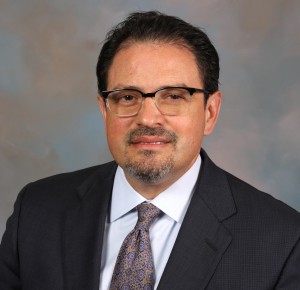 The Obama administration will soon be looking for a new top telecommunications cop. Federal Communications Commission Chair Julius Genachowski recently announced that he’d soon be leaving his post.
The Obama administration will soon be looking for a new top telecommunications cop. Federal Communications Commission Chair Julius Genachowski recently announced that he’d soon be leaving his post.
Some are calling for the next FCC chair to aggressively police the Internet and exert a tighter regulatory hold over the firms that have built its backbone.
The last thing the Internet needs is more government regulation. Its decentralized, unregulated structure is the very reason it’s grown from a nonentity to a fundamental presence in our lives in less than 20 years.
Federal officials should encourage private investment in the Internet’s infrastructure – not chase it away with needless regulation.
The latest call for stricter government control of the Internet comes from Susan Crawford, a visiting professor at Harvard – and a dark-horse candidate for the FCC chairmanship. Crawford and her allies believe that the Internet should be treated like a public utility, with government oversight of rates and practices.
When it comes to Internet service, Crawford maintains, “There are two enormous monopoly submarkets – one for wireless and one for wired transmission.” That supposed monopoly allows cable and phone companies to charge exorbitant prices for subpar service. Consequently, according to Crawford, “a limited number of Americans have access to [high-speed Internet], many can’t afford it.”
That narrative is not consistent with the facts. Eighty-five percent of Americans have a choice of two or more wirelike broadband providers, and nearly half can select from three or more wirelike providers.
The United States has over 88 million wired broadband subscriptions – the most in the world, according to the Organization for Economic Cooperation and Development (OECD).
The U.S. market for wireless Internet is even more competitive. Nine in 10 Americans can choose from at least five wireless service providers, and the United States leads the world in the deployment of the latest 4G wireless technology.
Indeed, among developed nations, the United States has the most wireless broadband subscriptions – 237 million.
Those who view the Internet as a utility would also like to see state and local governments invest public money in broadband infrastructure in order to inject additional competition into the marketplace.
But states and municipalities don’t have the money to do so. They’re only beginning to recover from the recession. Thanks to the bursting of the housing-market bubble, property values have sunk – and with them, property-tax revenues. Many states and cities still face substantial unfunded pension liabilities.
Further, despite the supposed lack of competition in broadband, private firms have spent huge sums building and improving their network infrastructure. Consumers have reaped the benefits.
Cable providers, for instance, can provide speeds of 1,000 megabits per second to more than four-fifths of homes nationwide. Internet access speeds are 40,000 times faster than they were just 20 years ago.
Since 1996, broadband providers have invested more than $1.2 trillion in their networks. Wireless carriers have made $348 billion in network capital expenditures.
These investments will generate as much as $150 billion in economic growth and create more than 750,000 new jobs.
They’ll also increase access to broadband. Almost all Americans – some 94 percent – have access to a wired Internet connection. An increasing number of them – nearly two-thirds – have adopted broadband at home. The quality of this service is spectacular. In 2013, the FCC found that “five ISPs routinely delivered nearly one hundred percent or greater of the speed advertised to the consumer.”
Hispanics in particular have benefited. In just the past three years, the share of Hispanics using the Internet shot up 14 percentage points – the largest increase for any ethnic group.
The private sector has invested in the Internet’s infrastructure because the federal government provided incentives 30 years ago by largely deregulating the telecommunications sector.
Those incentives – and the investment they encourage – would vanish if the government turned back the clock and began regulating the Internet as a public utility.
The Internet is changing on a minute-by-minute basis, thanks to the preferences and contributions of billions of people worldwide. The government cannot hope to manage that level of dynamism without threatening innovation and economic growth.
Instead of tightening their grip on the Internet, policymakers should embrace its decentralized nature and encourage the private sector to continue to build out our broadband infrastructure.
That should be the agenda for America’s next top telecom cop.
Gus West is the Board Chair and President of The Hispanic Institute (THI), and co-Chair of the Hispanic Technology and Telecommunications Partnership (HTTP). He has been involved with governmental and political life for more than 20 years, beginning with serving the Nevada State Assembly as Assistant Sergeant At Arms, and then the City of Las Vegas as a Senior Management Analyst. Mr. West later went on to serve at the United States Department of Commerce in the Administrations of Economics and Statistics, Economic Development, and International Trade. Find out more about The Hispanic Institute (THI) at www.thehispanicinstitute.org.

Recent Comments